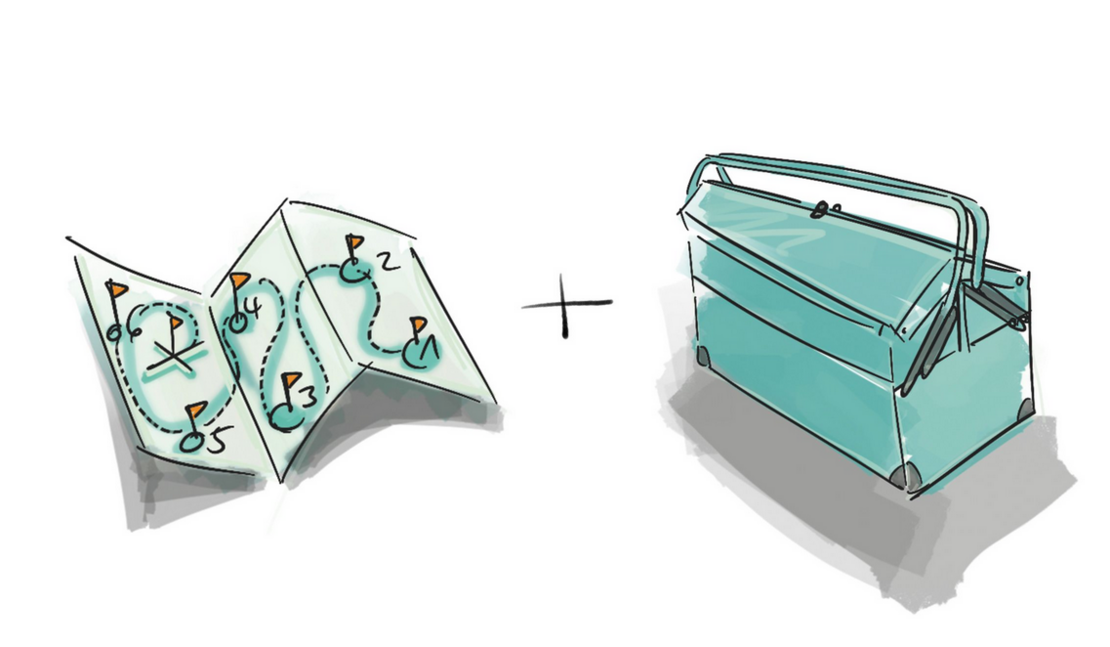This page contains automatically translated content.
How do I want to live the day after tomorrow? Toolbox for "Xtopia"

How can we deal with our future challenges? What ideas and methods can help us develop ideas? Innovative and experience-oriented visions of the future can be developed from positive, negative and ambivalent ideas. These "Xtopias" need to be made visible and usable.
The "Toolbox for Xtopias" is a result of the research project "Urban Xtopias - Open Spaces of the Future", in which the University of Kassel, the German Institute of Urban Affairs, the Karlsruhe Institute of Technology, the Westphalian University of Applied Sciences and freelancers were involved. In the project funded by the Robert Bosch Stiftung, the research team developed the "Xtopia" as a concept for shaping the future and tested it in practice throughout Germany. Xtopias make it possible to reflect on ideas about the future and invite people from different social groups to formulate their own new visions for a desirable future. In the best-case scenario, they motivate people to actively shape future changes in terms of the necessary transformation towards greater sustainability.
"The aim of the Xtopia toolbox developed by our research team is to enable people to develop their own new visions for the future in a playful way, to exchange ideas with others and to critically reflect on their own visions," says sustainability scientist and co-project manager Dr. Jasmin Jossin. The project team focused primarily on future human-nature relationships, the future of work and visions for preparing for death. The toolbox is available free of charge as a PDF. The toolbox is also suitable for other future topics and is primarily aimed at educational stakeholders, cultural workers, activists, personnel developers and sponsors, but can also be interesting for private individuals.
The toolbox consists of an introductory publication that first introduces readers to 'utopian thinking' and presents some examples of utopias. With step-by-step instructions and checklists, it invites future designers to develop their own utopias in a practical way. To this end, the research team has developed eight tools that can also be used as methodological elements in a group process - for example in educational contexts, cultural events or in personal development. Five of the eight tools can also be tried out by individuals or families on their own.
Example tools from the toolbox:
- Thought journey into the future:
A guided meditation as an audio file allows you to become aware of your own images and visions of the urban future. - Change of perspective:
Role cards introduce you to the perspective of a free-living animal and thus expand your own perception of the urban environment. - Play space experiment:
A stimulus to develop a personal open space utopia and then reflect on it. - Cohabitat:
A puzzle and role-playing game for groups of 4 people or more reveals current human-nature conflicts and inspires ideas for future forms of coexistence. - The digital Todomat:
A legacy configurator that recommends to-dos to its users to prepare for their death in an indefinite future - with real and fictitious options today.
Three other tools are open-ended, require more extensive preparation and unfold their potential in a guided group process:
- Mood boards as door openers:
Instructions on how to use large-format collages of photos, images and graphics to stimulate thinking about futures. - Installation for networked thinking:
A three-dimensional installation in the room that helps to identify the connections between two multi-layered future topics. - Xtopian circuit training:
The concept for an interactive format with several stations that trains developers and visitors for the future through thought experiments.
The tools each consist of a short profile, which is primarily aimed at Section Heads, as well as instructions and downloadable material or illustrative practical examples. The toolbox and other materials are available to download free of charge.
Contact:
Dr. Annette Voigt
University of Kassel
E-mail: voigt[at]asl.uni-kassel[dot]de
Project website: www.xtopien.org